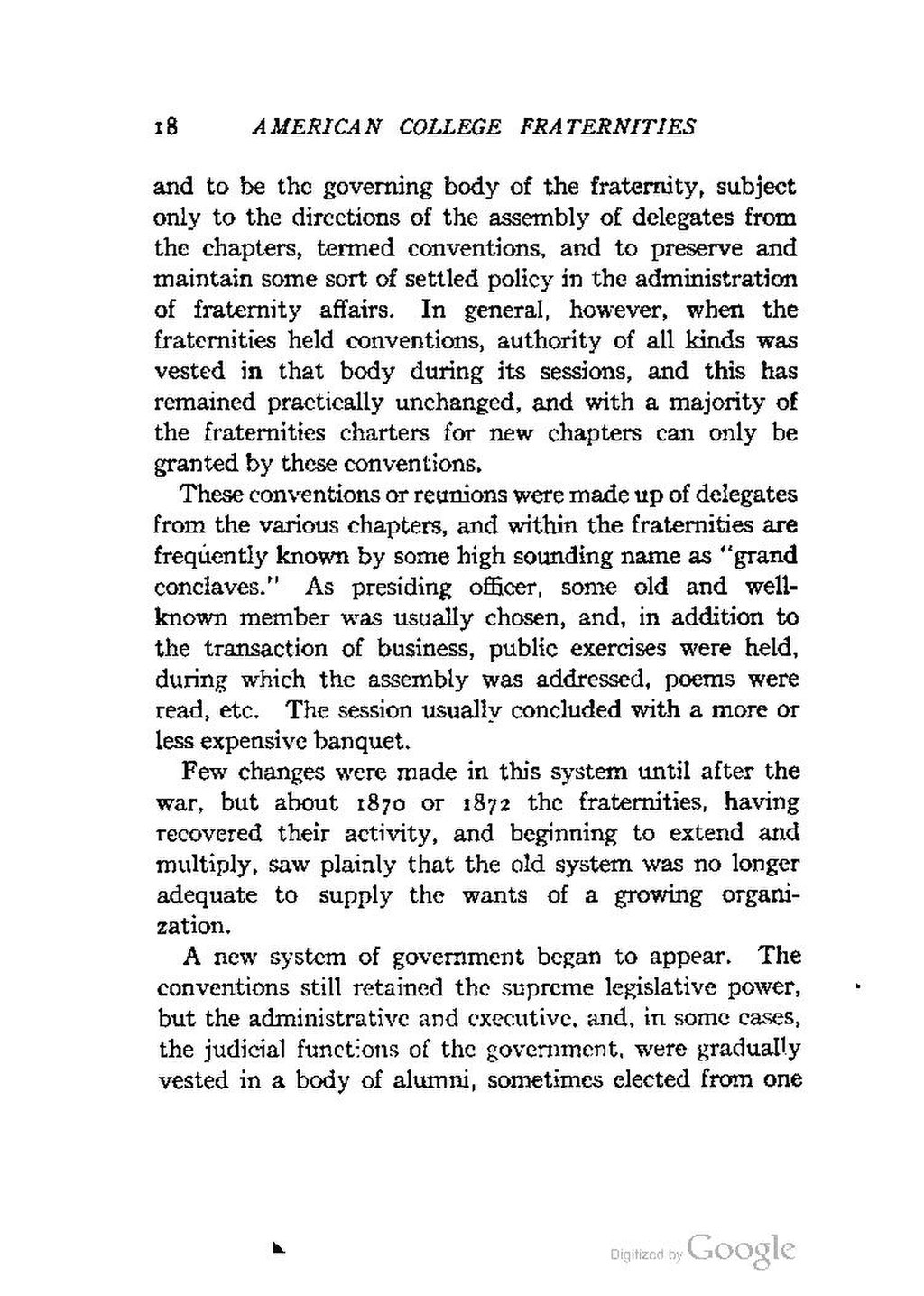and to be the governing body of the fraternity, subject only to the directions of the assembly of delegates from the chapters, termed conventions, and to preserve and maintain some sort of settled policy in the administration of fraternity affairs. In general, however, when the fraternities held conventions, authority of all kinds was vested in that body during its sessions, and this has remained practically unchanged, and with a majority of the fraternities charters for new chapters can only be granted by these conventions.
These conventions or reunions were made up of delegates from the various chapters, and within the fraternities are frequently known by some high sounding name as "grand conclaves." As presiding officer, some old and well-known member was usually chosen, and, in addition to the transaction of business, public exercises were held, during which the assembly was addressed, poems were read, etc. The session was usually concluded with a more or less expensive budget.
Few changes were made in this system until after the war, but about 1870 or 1872 the fraternities, having recovered their activity, and beginning to extend and multiply, saw plainly that the old system was no longer adequate to supply the wants of a growing organization.
A new system of government began to appear. The conventions still retained the supreme legislative power, but the administrative and executive, and, in some cases, the judicial functions of the government, were gradually vested in a body of alumni, sometimes elected from one
